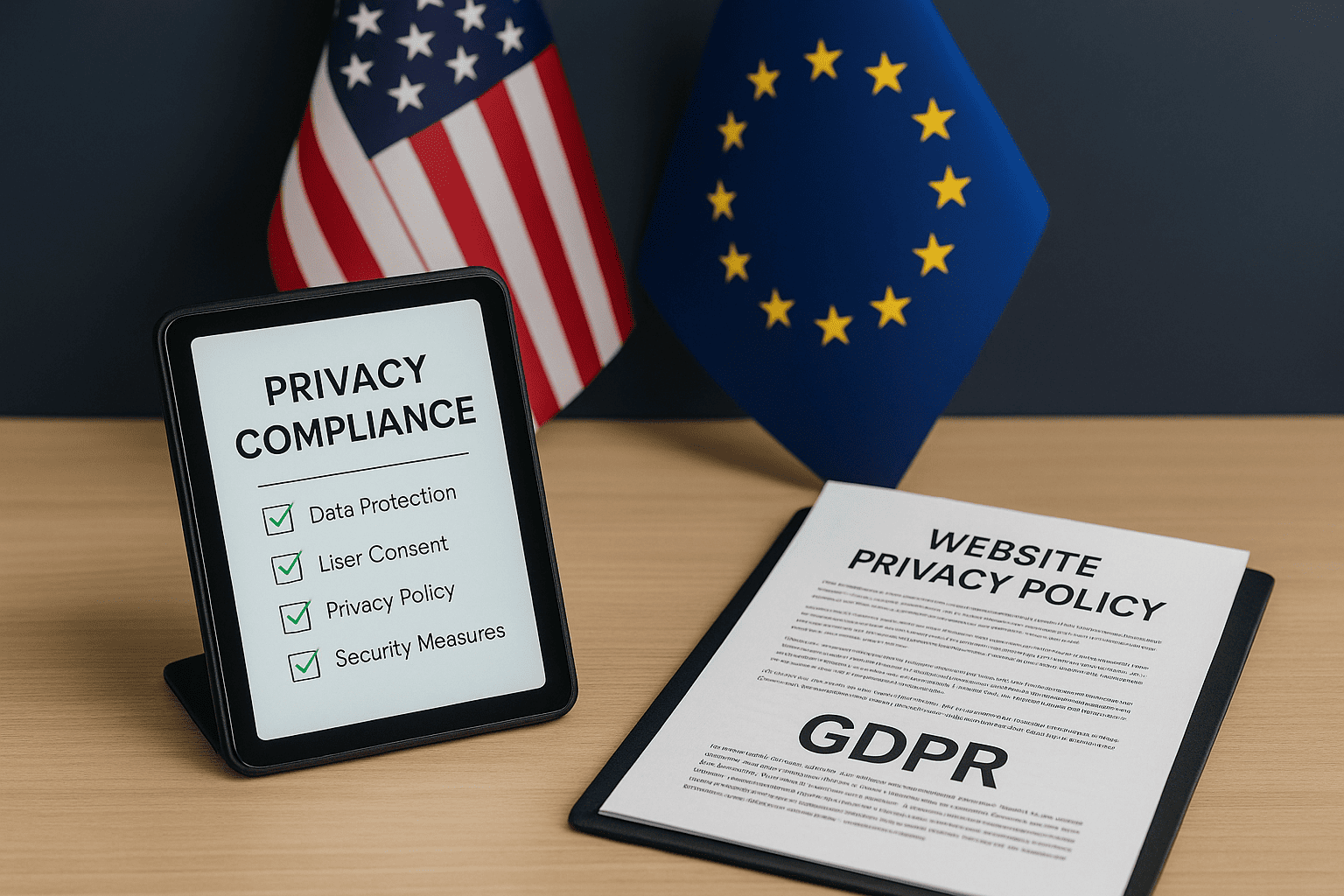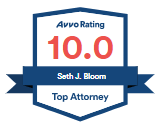GDPR Compliance for U.S.-Based Websites

What New Orleans-Area Businesses Need to Know
If your website is based in the United States, you might assume European data privacy laws don’t apply to you. But if you’re collecting any personal data from users in the European Union, the General Data Protection Regulation (GDPR) likely affects your business.
GDPR isn’t just for companies located in Europe. It’s a global privacy law with real consequences for U.S.-based companies that fail to comply. That includes Louisiana businesses with international clients, e-commerce websites, hospitality services, software companies, and professional services firms with a digital presence.
If your website collects data from users in the EU, even unintentionally, your business could be at risk of noncompliance. In this blog, we’ll explain how GDPR works, who it applies to, and what U.S.-based businesses in the New Orleans area need to do to meet its requirements.
Unsure if your website complies with GDPR? Work with a local attorney who understands both international privacy laws and how they intersect with U.S. business practices.
What Is GDPR?
The General Data Protection Regulation (GDPR) is a privacy law enacted by the European Union in 2018. Its purpose is to give EU citizens greater control over how their personal data is collected, processed, and stored by businesses, regardless of where those businesses are located.
GDPR applies to any organization that:
- Offers goods or services to people in the EU
- Monitors the behavior of individuals in the EU (such as through cookies, analytics, or remarketing)
This includes U.S.-based websites and businesses that may not have a physical presence in Europe but still receive traffic, inquiries, or purchases from EU residents.
If your business has a contact form, an email list, an online store, or analytics that track EU users, you may be subject to GDPR.
Key Requirements of GDPR for U.S. Businesses
Here are the core GDPR obligations that apply to most websites and businesses:
1. User Consent for Data Collection
You must obtain clear, affirmative consent from users before collecting their personal data; this includes names, email addresses, IP addresses, and any behavior tracked through cookies.
Pre-ticked boxes or passive consent methods (like “by using this site you agree…”) are not valid under GDPR.
Use a clear cookie banner and privacy notice to inform users of what data you collect and how it will be used.
2. Right to Access and Deletion
EU users must be able to:
- Request access to the data you’ve collected about them
- Request correction or deletion of their data
- Object to or restrict processing
- Request their data be transferred to another service
Your website must have a mechanism to handle these requests efficiently and within the legally required timeframe (usually 30 days).
Having clear data-handling procedures in place is critical to avoiding complaints and fines under GDPR.
3. Data Protection by Design
From the way your website is coded to the tools and third-party services you use, privacy must be built in from the start. This includes:
- Limiting data collection to only what’s necessary
- Encrypting personal data
- Using secure systems for storage and transmission
- Choosing GDPR-compliant third-party services
If your website collects unnecessary data or lacks basic cybersecurity measures, it could violate GDPR requirements.
Make sure your New Orleans-area web developers and hosting services follow privacy-first standards.
4. Updated Privacy Policy
You must publish a privacy policy that:
- Clearly states what data you collect
- Explains how it’s used
- Lists who it is shared with (such as third-party platforms)
- Outlines how users can exercise their rights
This policy must be easily accessible and written in clear, user-friendly language—not legal jargon.
If you haven’t reviewed your privacy policy in the last year, now is the time! Bloom Legal Network connects you with experienced cybersecurity and privacy attorneys in New Orleans and surrounding parishes. Let us help you stay compliant and protected.
5. Data Breach Notification
If your company experiences a data breach involving EU users’ personal information, you must notify the appropriate EU supervisory authority within 72 hours of becoming aware of it.
In certain cases, you must also notify the individuals affected.
This requires a well-documented incident response plan and a clear understanding of where user data is stored.
Waiting until a breach occurs to figure out your legal obligations could expose your business to serious penalties.
What Happens If You Don’t Comply?
GDPR fines can be substantial, even for U.S. businesses. Regulators can impose penalties up to:
- €20 million, or
- 4% of your company’s global annual revenue, whichever is higher
While enforcement is still developing in the U.S., businesses have already been fined for violations, particularly those with high EU web traffic.
It’s not just the fine. Noncompliance can damage your reputation, strain international client relationships, and even impact your ability to partner with European companies.
Don’t assume that because you’re based in Louisiana, you’re immune from GDPR enforcement! If your business handles personal data online, don’t leave compliance to chance. Contact Bloom Legal Network to find the right legal partner for your needs.
How to Know If GDPR Applies to You
Your business might need to comply with GDPR if:
- Your website receives traffic from EU countries
- You offer international shipping or services to EU clients
- You use tools like Google Analytics, Facebook Pixel, or Mailchimp
- You accept payments in euros or list prices in EU currencies
- You run remarketing or targeted ad campaigns that reach EU users
Even small websites can collect enough personal data through cookies, forms, or third-party scripts to trigger GDPR obligations.
If you’re unsure whether GDPR affects your business, have a local attorney conduct a privacy compliance review.
Why Local Legal Support Matters
Many Louisiana businesses rely on website developers or IT providers to manage online compliance, but GDPR is ultimately a legal issue, not just a technical one. Relying on plug-ins or generic policies may leave your business exposed.
A local attorney who understands international privacy law, U.S. business structures, and the legal environment in Louisiana can help you:
- Audit your data collection practices
- Update contracts with vendors and processors
- Draft privacy policies tailored to GDPR and U.S. law
- Respond to access and deletion requests
- Mitigate your liability in case of a breach or violation
If you operate in New Orleans, Metairie, Jefferson Parish, St. Charles Parish, or St. Tammany Parish, your GDPR strategy should also consider local business laws, insurance policies, and risk exposure.
Get clarity before enforcement catches up to your website.
Call 504-599-9997
Email info@bloomlegal.com
Let Bloom Legal Network match you with an experienced cybersecurity and privacy attorney in your area.
GDPR is here to stay. If your website collects data from EU users, even unintentionally, it’s your responsibility to understand the risks and respond accordingly!






